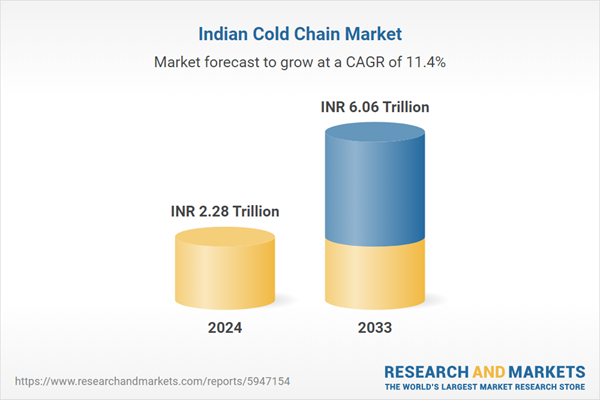Cold chains impart storage and distribution services for products that have to be maintained at a given temperature. India is currently the world’s largest producer of milk, second largest producer of fruits and vegetables and has a substantial production of marine, meat and poultry products. Most of these products are temperature sensitive and require specific temperature ranges to be stored and transported. This has resulted in the establishment of a very large cold chain infrastructure in the country.
Indian Cold Chain Market Drivers:
- Growth in Organized Food Retail: Organized retail is expected to be amongst the biggest drivers of the cold chain market in India. With the growth of the organized food retail, we expect consumers to get access to a very large variety of fresh fruits and vegetables, dairy products, meat and poultry products and a number of other temperature sensitive commodities that require cold chain storage and transportation. Most of the organized retail players have already acknowledged that setting up of a strong cold chain infrastructure is a key step in efficiently managing their supply chains.
- Growth in the Processed Food Sector: There has been a marked improvement in the consumer demand for processed foods. The Indian government has also announced the intent of establishing several mega food parks. This augurs well for the development of the cold chain industry in the country.
- Shift Towards Fruits and Vegetables: Due to increasing risks and investments in grain crops, farmers are moving towards cultivation of fruits and vegetables. Most of these crops require refrigeration and hence are expected to encourage the development of cold storage facilities.
- Increasing Demand from the Healthcare Sector: A number of healthcare products such as vaccines, biopharmaceuticals as well as clinical trial materials are heat sensitive and must be stored at temperatures ranging from 2OC - 8OC. With India’s vaccine, biopharmaceutical and clinical trials market expected to grow at double digit growth rates, we expect a strong demand of efficient cold chain facilities in the coming years.
Key Market Segmentation:
The research provides an analysis of the key trends in each sub-segment of the Indian cold chain market report, along with forecasts at the country and state level from 2025-2033. Our report has categorized the market based on segment, product, sector and organised and unorganised.Breakup by Segment:
- Cold Chain Storage
- Cold Chain Transportation
Breakup by Product:
- Fruits and Vegetables
- Meat and Fish
- Dairy Products
- Healthcare Products
Breakup by Sector:
- Private
- Cooperative
- Public
Breakup by Organised and Unorganised:
- Organised
- Unorganised
Breakup by States:
- Uttar Pradesh
- West Bengal
- Punjab
- Gujarat
- Bihar
- Andhra Pradesh
- Madhya Pradesh
- Maharashtra
- Karnataka
- Haryana
- Chhattisgarh
- Rajasthan
- Orissa
- Tamil Nadu
- Others
Competitive Landscape:
The competitive landscape of the market has also been examined in the report and the profiles of key players have also been provided.This report provides a deep insight into the Indian cold chain market covering all its essential aspects. This ranges from the macro overview of the market to micro details of the industry performance, recent trends, key market drivers and challenges, SWOT analysis, Porter’s five forces analysis, value chain analysis, etc. This report is a must-read for entrepreneurs, investors, researchers, consultants, business strategists, and all those who have any kind of stake or are planning to foray into the Indian cold chain market in any manner.
Key Questions Answered in This Report
- What is the size of cold chain market in India?
- What is the future of cold storage in India?
- What are the key factors driving the Indian cold chain market?
- What has been the impact of COVID-19 on the Indian cold chain market?
- What is the breakup of the Indian cold chain market based on the segment?
- What is the breakup of the Indian cold chain market based on the product?
- What is the breakup of the Indian cold chain market based on the sector?
- What is the breakup of the Indian cold chain market based on the organised and unorganised sector?
- What are the key regions in the Indian cold chain market?
- Which is the biggest cold chain company in India?
Table of Contents
Table Information
| Report Attribute | Details |
|---|---|
| No. of Pages | 116 |
| Published | June 2025 |
| Forecast Period | 2024 - 2033 |
| Estimated Market Value ( INR | INR 2.28 Trillion |
| Forecasted Market Value ( INR | INR 6.06 Trillion |
| Compound Annual Growth Rate | 11.4% |
| Regions Covered | India |








